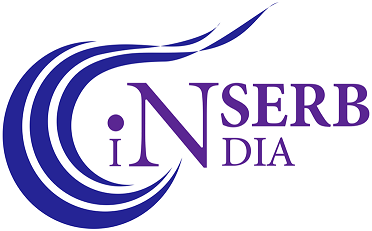About Presidency University
Presidency University, Bangalore, is an NAAC 'A' accredited institution, renowned for its commitment to quality education and holistic student development. Established in 2013 by the Presidency Group of Institutions, it is an emerging leading educational institution in India. With a focus on innovation, research, and experiential learning, the University attracts students seeking both academic excellence and personal growth.
Offering a wide range of programmes in computer science, engineering, management, commerce, law, design, media studies, liberal arts, and allied health sciences, the University blends theoretical knowledge with practical application. The experienced faculty ensures a dynamic and supportive learning environment. The University prepares students for global careers, emphasising discipline, integrity, and adherence to its values and regulations. Every student is encouraged to uphold these standards and contribute to the University’s esteemed legacy.
Presidency University has earned numerous recognitions, including the QS-I Gauge Gold, ranking 6th in the Times Engineering Institute Survey, and Best University of the Year (South) by ASSOCHAM.
Presidency School of Commerce
Presidency School of Commerce offers B.Com. programme designed to develop future leaders in commerce. The curriculum builds managerial skills while focusing on accounting, finance, taxation, business management, analytics, marketing, and technology. The programmes provide industry-relevant training through case studies, live projects, and hands-on learning. Students can specialise in Banking & Finance, Corporate Accounting & Taxation, CMA-US, Business Analytics, and CA Foundation, ensuring they gain expertise in high-demand areas. With strong placement and internship support, graduates secure roles as financial managers, analysts, and professional accountants in leading organisations and accounting firms. The comprehensive programme equips students with the knowledge, skills, and industry exposure needed to excel in the dynamic world of commerce.
About the Conference
This international conference aims to elucidate the integration of artificial intelligence within specific domains while fostering interdisciplinary, multidisciplinary, and transdisciplinary collaborations that address emerging complexities and drive innovative pathways forward.
Spanning commerce, economics, technology, healthcare, law, education, and the social sciences, AI continues to redefine the production of knowledge, the architecture of decision-making, and the operational paradigms of modern systems. Emphasising ethical alignment, regulatory foresight, and human-centric design, the conference will examine advanced applications of artificial intelligence across domains such as market forecasting, sustainable trade, business optimisation, and customer intelligence.
Designed as an intellectual confluence for scholarly dialogue, research dissemination, and collaborative exploration, the event aspires to inspire integrative thinking and strategic action. Through such engagement, artificial intelligence emerges not only as a technological force but also as a catalyst for shaping a more intelligent, equitable, and sustainable global future.
Objectives
- Examine the transformative role of artificial intelligence across diverse academic and professional disciplines.
- Disseminate innovative research and practical applications of artificial intelligence.
- Promote ethical and sustainable integration of artificial intelligence in society and industry.
- Foster collaboration among academia, industry, and policy stakeholders in the AI ecosystem.
- Envision future directions and global implications of artificial intelligence advancements.
Core Themes and Sub-Themes
- Theme 1: AI in Commerce, Business, and Economics
- AI-driven decision making in business strategy
- Intelligent financial forecasting and risk management
- AI in supply chain and logistics
- Automation in retail and consumer behaviour analytics
- AI and digital marketing transformations
- Theme 2: AI for Society, Ethics, and Governance
- Ethical frameworks and responsible AI
- Policy, regulation, and global governance of AI
- Fairness, bias, and transparency in AI systems
- Data privacy and cybersecurity
- Social inclusion and equity through AI
- Theme 3: AI in Education and Learning Systems
- Personalised learning and adaptive education
- Intelligent tutoring and assessment systems
- AI in curriculum design and educational planning
- Academic analytics and institutional transformation
- Theme 4: AI in Science, Health, and Environment
- AI in healthcare delivery and diagnostics
- Drug discovery and personalised medicine
- AI for climate modelling and disaster management
- Environmental sustainability and AI-driven solutions
- Theme 5: Technological Innovations and Foundations in AI
- Advances in machine learning and deep learning
- Natural Language Processing and computer vision
- Robotics, automation, and intelligent systems
- Cognitive computing and human-AI interaction
- Theme 6: Interdisciplinary, Multidisciplinary, and Transdisciplinary AI Applications
- AI in law, public policy, and governance
- AI in arts, design, and cultural innovation
- AI and behavioural or cognitive sciences
- Cross-sectoral solutions to complex societal challenges
- Theme 7: The Future of Work and Human-AI Collaboration
- Workforce transformation in the age of AI
- Human-AI synergy and augmentation
- Reskilling and upskilling in AI-integrated economies
- Organizational innovation and AI-led change
- Other Relevant Topics
- Submissions are also welcome on any other topic that aligns with the core theme of artificial intelligence transforming lives, industries, and the global future through disciplinary synergy.
- Dr. Nissar Ahmed, Honourable Chancellor, Presidency University
- Dr. S. J. Thiruvengadam, Vice Chancellor In-Charge
- Dr. Vidya Shankar Shetty, Pro Vice Chancellor
- Dr. Sivaperumal S., Pro Vice Chancellor
- Dr. Sameena Noor Ahmed Panali, Registrar
- Dr. Prabhu, Assistant Professor, Indian Institute of Management Ranchi
- Dr. B. Nimalathasan, Professor, School of Commerce and Management, University of Jaffna, Sri Lanka
- Prof. S. Sreenivasa Murthy, Director, Senior Professor and NLCIL Chair Professor on CSR, Institute of Public Enterprise, Hyderabad, India
- Dr. Sarfaraz Javed, Associate professor, Sohar University, Oman
- Dr. Haidar Abbas, Assistant Professor, University of Technology & Applied Sciences, Nizwa, Oman
- Dr. Ataur Rahman Farooqi, Assistant Professor, College of Economics & Business Administration Nizwa, Oman
- Prof. Y. Rama Krishna, Professor & Programme Head – PGDM, Institute of Public Enterprise, Hyderabad, India
- Dr. P. Kalyani, Assistant Professor & Joint Coordinator - Alumni Relations, Institute of Public Enterprise, Hyderabad, India
- Dr. Afzalur Rahman, Professor, Woxsen University, Hyderabad, India
- Dr. Praveen Kumar, Dean, School of Management, SRM University, Chennai, India
- Dr. S. Saravanan, Professor & Principal, Dr. N.G.P. Arts and Science College (Autonomous), Coimbatore, Tamil Nadu, India
- Dr. Pulidindi Venugopal, Professor & Associate Dean, VIT Business School, VIT University, Vellore, India
- Dr. Sarfaraz Karim, Associate Professor, Department of MBA, GGSESTC, Bokaro, Jharkhand, India
- Dr. K. Karthikeyan, Associate Professor, PSG College of Arts and Science (Autonomous), Coimbatore, Tamil Nadu, India
- Dr. Yasir Arafat Elahi, Associate Professor, Integral University, Lucknow, India
- Dr. R. Rajesh Ramkumar, Associate Professor, ANJAC (Autonomous), Sivakasi, Tamil Nadu, India
- 1. Originality:
- Submissions must be original, unpublished, and not under review elsewhere.
- 2. Abstract Submission:
- Word limit: 250–300 words
- Should include title, keywords, objectives, methodology, and key findings
- Format: MS Word, Times New Roman, 12 pt., 1.5 spacing
- 3. Full Paper Submission:
- Word limit: 4,000–6,000 words (including references)
- Font: Times New Roman, 12 pt., 1.5 spacing, justified alignment
- 4. Publication:
- Accepted papers will be published in a peer-reviewed conference proceedings volume with an ISBN.
- 5. Plagiarism:
- All submissions must be accompanied by a plagiarism report (Turnitin or similar), with a similarity index not exceeding 10%, excluding references.
- 6. Referencing style:
- APA 7th edition
- Figures and tables must be numbered, captioned, and properly cited
- 7. Language:
- All submissions must be in clear and grammatically correct English.
- 8. File Format:
- Papers must be submitted in editable MS Word (.doc or .docx) format.
- 9. Review Process:
- All submissions will undergo a double-blind peer review. Authors must avoid including identifying details in the manuscript.
- 10. AI Content Declaration:
- Authors must submit a disclosure on the use of AI tools in the writing or analysis process, if applicable. Any content generated with AI must be explicitly reviewed and verified by the author(s).
- 11. Submission Email / Portal:
• ictdai2025@presidencyuniversity.in
Networking and Publication Opportunities
The conference fosters meaningful engagement across individual, interdisciplinary, multidisciplinary, and transdisciplinary domains. It offers participants the chance to connect with scholars, professionals, and policymakers to build collaborative networks. Selected papers will be published in an edited volume with an ISBN, enhancing academic visibility and cross-disciplinary impact.
|
Full Paper Submission |
Last date of submission - November 10, 2025 |
|
Notification of Acceptance |
November 10, 2025 |
|
Camera-ready Submission |
December 17, 2025 |
Rs.1500 per paper (Maximum three authors per paper) Registration fee includes conference kits, lunch and ISBN publication (proceedings)
Registration fee for Online and Offline is same No TA/DA allowance and No accommodation.
Organising Committee
- Dr. Hemanth Kumar V.
- Dr. Syed Abid Hussain
Conference Management Committee
- Mr. Baktha Sabari Rajan V., Professor of Practice, PSOC
- Mr. Neelakanteswara Swamy, Professor of Practice, PSOC
- Dr. Syed Ahmed Wajih, Associate Professor, PSOC
- Dr. Joan Kingsly P.S., Assistant Professor -Senior Scale, PSOC
- Dr. Shaply Abdul Kareem, Assistant Professor -Senior Scale, PSOC
- Dr. Rajkumar Chavan, Assistant Professor -Senior Scale, PSOC
- Dr. Amit Saha, Assistant Professor – Senior Scale, PSOC
- Dr. Mohsin Showkat, Assistant Professor, PSOC
Contact Details
Dr. K. Krishna Kumar
Dean, PSOC
Presidency University – Bengaluru, India
E-mail: ictdai2025@presidencyuniversity.in
Dr. M. Padmavathi
Assistant Dean
HoD In-Charge, PSOC
HoD InCharge, PSOC


















 Rajanukunte, Yelahanka, Bengaluru, Karnataka, Pin: 560119, India
Rajanukunte, Yelahanka, Bengaluru, Karnataka, Pin: 560119, India
 +91 9022092222
+91 9022092222